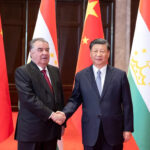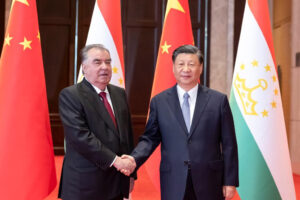Chilean Mining Minister Marcela Hernando said in an interview with EFE that the national lithium strategy recently announced by the government does not seek to nationalize the mineral – since “it has been (nationalized) since the (1973-1990) dictatorship” – and that the aim, apart from enabling Chile to gain a leading position in lithium mining, is to increase production “because the world needs it.”
“Are we interested in being leaders? Of course we are, but what interests us most is for more lithium to be produced, because the world needs it. Obviously we are also interested in placing it well in the markets,” Hernando said.
Chile, the country with the world’s largest exploitable lithium reserves, is the second-biggest producer of the mineral – and the world’s top copper producer – after Australia, but Argentina is a close third and could surpass Chile in the coming years.
According to a report by the large US bank JP Morgan in February, in 2030 Argentine lithium production will exceed Chile’s.
“As a state, we’ve delayed a lot in reacting, in doing research. We have 9.6 million metric tons in the Atacama Salt Flat, but we have another 45 salt flats where we don’t know how much we have in reserves,” the minister said.
Chilean President Gabriel Boric in late April announced his long-awaited lithium policy, which is designed to make the country the main engine and controlling force in the industry via a public-private model and the creation of a national lithium company.
These days, just two private companies exploit lithium in the Atacama Salt Flat region, where 90 percent of the country’s known reserves are located – the US firm Albemarle and the SQM Chemical and Mining Society, controlled by China’s Tianqi Lithium and the son-in-law of former Chilean dictator Augusto Pinochet, Julio Ponce Lerou.
In 2022, Chile exported $6.877 billion worth of lithium carbonate, a 777 percent increase over exports of the mineral in 2021, according to the Central Bank.
The strategy received an avalanche of criticism from the industry, which Hernando blamed on the “enormous interest” aroused by lithium, known as “white gold” because of it is a vital element in batteries and electric vehicles.
“There are also geopolitical reasons and pressures at the international level. We’re a very small country but with a very open economy and we’re subject to this type of pressure,” said Hernando, who served two terms as a legislator and was also mayor of the northern city of Antofagasta, the capital of Chile’s powerful mining industry.
State-run companies like Codelco – the world’s largest copper producer – and Enami will be tasked with implementing the first phase of the lithium strategy until the national lithium company begins operating, the creation of which must be approved by Parliament, where the government does not enjoy a majority but intends to engage in “dialogue,” Hernando said.
“It was understood that this was a nationalization. The truth is that only what is private can be nationalized. Here, lithium is declared to be a non-concessible strategic element in the 1980 Constitution. That is, it’s the property of the state and the state is the one that decides” how it shall be exploited, she said.
“Nor are we intervening in the contracts that exist with the two private companies exploiting it. What we’re doing is establishing the rules so there’s good use of this resource,” added Hernando, who granted her interview with EFE just days after the approval by a wide majority of a tax on large-scale mining that aims to collect 0.45 percent of Chile’s GDP.
The lithium boom is of special concern to environmentalists due to the enormous amount of water needed to exploit it and because Chile is the country experiencing the greatest hydric stress in the Americas with calculations being that each ton of lithium extracted requires the evaporation of two million liters (about 53,000 gallons) of water.
The minister said that the aim is to “migrate toward more sustainable techniques” and that the strategy establishes that any company that wants to participate in the lithium industry must do so via direct extraction and not via the evaporation technique.
“We can’t continue evaporating the water. The method, in addition, is inefficient because it doesn’t extract more than 60 percent of the lithium in the salt brine,” she said.
Another big challenge facing Chile is how to prevent lithium from being converted into a new saltpeter and the industry becoming exclusively extraction-based.
“Australia extracts lithium from the rock and exports it as concentrate, which is mainly processed in China. What interests us is leaving the added value in Chile,” said Hernando, who added that there are about 50 companies from 12 countries that have already initiated contact with Santiago and which are interested in participating in different phases of the production chain.
World demand is so great, she said, that “even if all the projects that are planned in Argentina and Bolivia began producing, we wouldn’t be able to satisfy it.”
Source: Laprensalatina
















